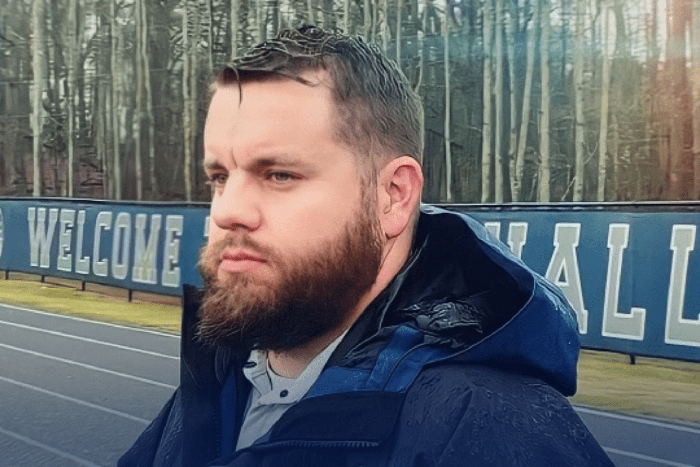Have a Herniated Disc?
What is a Herniated Disc?
Your spine is made up of 33 interlocking bones, called vertebra. Between each vertebra is a spinal disc that works as a cushion to keep the bones from rubbing together. The discs absorb shock and give you the ability to move and stretch.
Sometimes, because of an injury or just normal “wear-and-tear,” the outer layer of a disc becomes damaged or weak. When this happens, the gel-like center of the disc can leak out, creating a herniated disc (also called a ruptured disc or slipped disc). When a disc ruptures like this, it can affect nearby nerves — causing pain, numbness, and/or weakness to radiate along the nerve.
A herniated disc can occur in three areas of your spine:
- Lumbar. Your lumbar spine (lower back) is the most common place for a herniated disc because it bears the most weight and gets used more than any other area of your spine.
- Cervical. The second most common place for a herniated disc is in the cervical spine (neck).
- Thoracic. Though less common, a disc can herniate in the thoracic spine (upper back).
What Causes a Herniated Disc?
Discs can rupture because of aging or normal “wear-and-tear” or because of a sudden trauma, like a sports injury or car accident.
Leading orthopaedic and sports medicine treatments
Learn about Emory Orthopaedics & Spine care. Make an appointment online, find a provider or call 404-778-3350 to schedule an appointment.
How Do You Know If You Have a Herniated Disc?
Symptoms vary by person and by the location of the disc. If your injury is in your lower back (lumbar), you’ll likely feel symptoms down the back of your leg. If you have a cervical (neck) herniated disc, you may feel it in your shoulder and arm. With a thoracic (upper back) injury, symptoms usually appear in the upper back and chest.
Some people experience a lot of pain, while others don’t feel any symptoms at all. While symptoms can vary, the most common ones include:
- Severe back pain around the ruptured area
- Muscle weakness, numbness, shooting pain or tingling in the arms, legs, shoulders or chest
- Muscle spasms
How is a Herniated Disc Treated?
Luckily, most herniated discs can be treated without surgery, especially when they’re identified quickly. Typically, you’ll be started on an anti-inflammatory medicine and be instructed to alternate ice and heat to reduce pain. In some cases, a steroid injection may be helpful. Physical therapy that includes back exercises may also be recommended.
If you have a herniated disc, you should avoid:
- Lifting heavy objects
- Bending
- Performing activities that worsen pain
- Playing sports
- If all other options are exhausted and radiating pain persists after 6 to 12 weeks of treatment, surgery may be needed.
Some surgery options for herniated discs are:
- Lumbar discectomy
- Anterior cervical discectomy
- Percutaneous discectomy
- Lumbar laminectomy
- Cervical laminectomy
- Emory Healthcare
Emory Orthopaedics & Spine Center’s nationally renowned specialists diagnose and treat lumbar, cervical and thoracic herniated discs. Our experienced physiatrists (non-operative physicians) and surgeons use innovative approaches to spine care with high rates of success. We exhaust all nonsurgical treatment options before considering surgery.
Schedule an appointment to see an Emory specialist today. Call 404-778-3350 or complete our online appointment request form.
About John Rhee, MD
Dr. John Rhee, associate professor of orthopaedic surgery at Emory School of Medicine, is an expert in cervical spine surgery, lumbar spine surgery, spinal deformity surgery (scoliosis, kyphosis), and surgery for spinal tumors. He’s also an active researcher and sought-after teacher/lecturer at the national and international level in multiple spine societies. Dr. Rhee has authored numerous textbooks and research articles on the spine. He joined the Emory team in 2001.
The Road to Emory: Education
- College, Stanford University, Stanford CA, 1990
- Medical School, University of California, San Francisco, CA, 1994
- Internship, University of California, San Francisco, CA, 1995
- Residency: Orthopaedic Surgery, University of California, San Francisco, CA, 2000
- Fellowship: Spinal Surgery, Washington University School of Medicine, St. Louis, MO, 2001
Leading orthopaedic and sports medicine treatments
About Emory Orthopaedics & Spine Center
Emory Orthopaedics & Spine offers comprehensive orthopedic and spine care at multiple locations across the Atlanta metro area, and our orthopedic and spine programs are ranked among the top in the nation. Our highly trained orthopaedic and spine specialists work together to diagnose and treat a wide variety of orthopaedic, spine, and sports medicine conditions.
Our physicians use innovative approaches to care – many of them pioneered right here at Emory – to ease your pain and get you back to an active lifestyle.
Emory University Orthopaedics & Spine also has among the highest patient satisfaction and best outcome rates in the nation* for your surgery. By using advanced research techniques developed by our top surgeons, we can make sure your surgery is done right the first time.
*Results based on an average of 86% patient satisfaction rating compared to a national benchmark of similar facilities at 68%. Infection rates averages at .45% for primary hip and knee procedures compared to .58% nationally.
Related Posts
-
 Athletic trainers are first responders for sports injuries and emergencies. Learn how one athletic trainer jumped in when a high school athlete collapsed.
Athletic trainers are first responders for sports injuries and emergencies. Learn how one athletic trainer jumped in when a high school athlete collapsed. -
 The Pro Volleyball Federation’s Atlanta Vibe has announced a multi-year partnership with Emory Healthcare, made official by both organizations today.
The Pro Volleyball Federation’s Atlanta Vibe has announced a multi-year partnership with Emory Healthcare, made official by both organizations today. -
 Dr. Amadeus Mason is the U.S. Olympic Track & Field team physician. His sports medicine expertise at Emory helps him care for athletes in Paris.
Dr. Amadeus Mason is the U.S. Olympic Track & Field team physician. His sports medicine expertise at Emory helps him care for athletes in Paris.
Recent Posts
-
Dec 11, 2025
-
Dec 8, 2025
-
Dec 3, 2025
-
Nov 17, 2025
-
Nov 14, 2025
-
Nov 10, 2025


